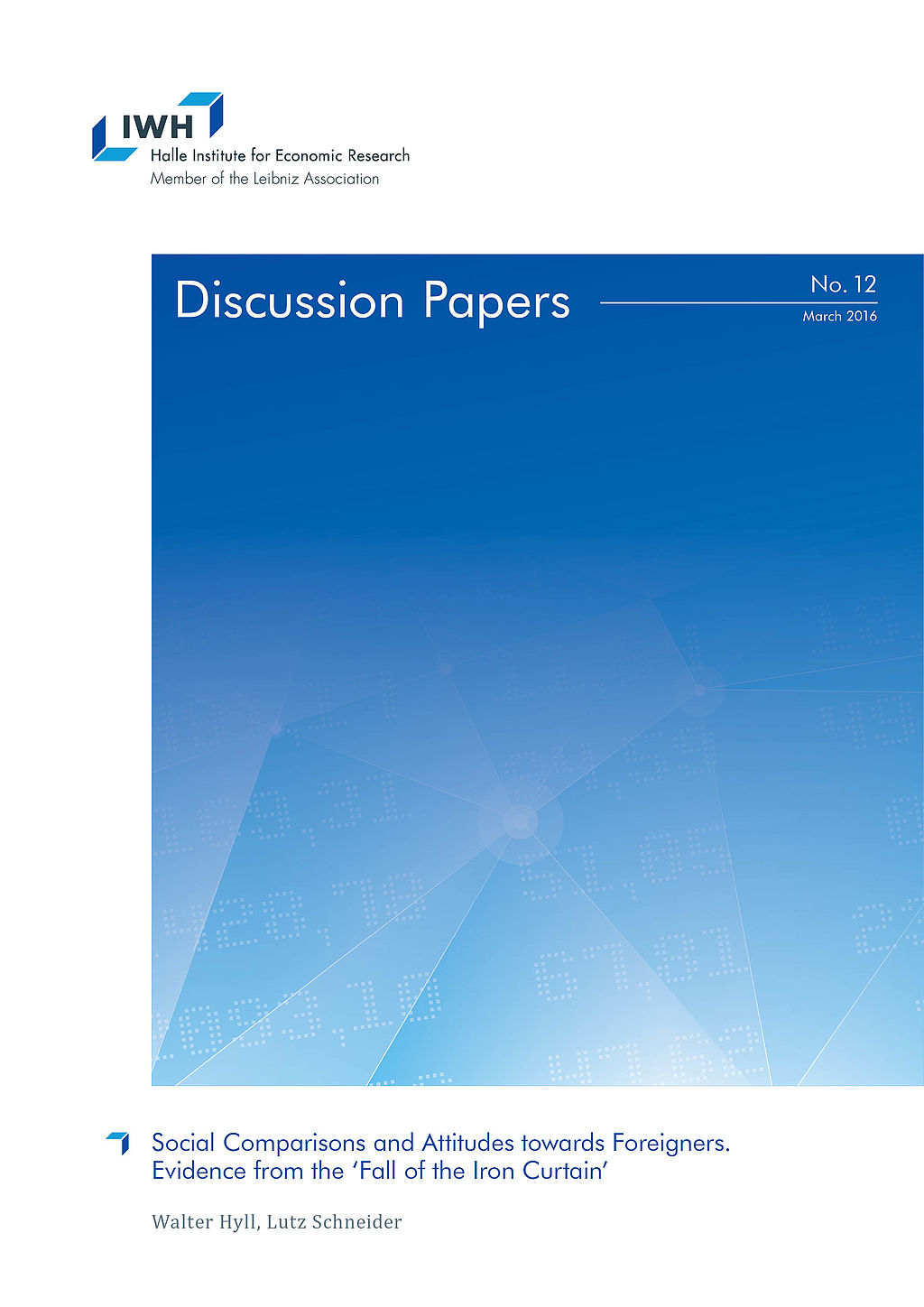The Perception of Financial Inferiority Nurtures Negative Attitudes Towards Foreigners
Handling immigration is one of the big challenges in Europe today. Researchers from the Halle Institute for Economic Research (IWH) – Member of the Leibniz Association and the University of Applied Science Coburg investigated causes for different views on foreigners and the role of “social comparisons” in determining these views. The concept of social comparisons assumes that emotions like happiness or satisfaction depend on a person’s income. But it is not only the absolute amount of money which is crucial for positive or negative feelings but the amount of money compared to family, friends and acquaintances (peer group). If a person compares his or her salary with friends and it turns out that compared to them, the salary is low (even if the said person belongs to the group of higher-income earners), this has a negative impact on the person’s level of overall life satisfaction. The research group headed by Lutz Schneider and Walter Hyll then explored the question whether the distress from social comparisons also affects the views on foreigners. Their results show that people who worried about their economic status compared to their better-off West German peer group are more likely against rights for foreigners, politically more oriented to the right wing and have stronger antipathies against foreigners – in particular against those from low-wage countries.
To identify this effect, the research group took advantage of the idea that immediately after the fall of the Berlin Wall (an exogeneous shock), the wealth difference between East and West became obvious. Hence, the researchers compared East Germans to their respective peer group in the West.
In accordance to the empirical literature, one could imagine several channels how foreigners might affect a native’s relative economic standing. If some native individuals and foreigners compete on local labour markets, those native individuals might face downward pressure on wages or increasing unemployment whereas other members of the same social group do not. In turn, the economic situation of some natives compared to the economic situation of others worsens. Therefore, natives with similar skills than immigrants should oppose immigration. Moreover, the competition for public goods or social transfers between natives and immigrants might also affect the relative economic status of natives compared to the relevant reference group. Another important channel that could be at work does not concern immigration but trade. Foreigners might produce goods and services less costly in their home economy than natives do. If, as a consequence, production in some industries of the native economy shrinks, the relative economic position of natives working in those industries might be affected. For that reasons, an individual’s attitude toward foreigners could be determined by the effect foreigners exert on the individual’s income position within his or her social group. Then, individuals show negative sentiments towards foreigners due to a depressed economic position compared to their reference group. Note that such sentiments do not require an actual deterioration in one’s income ranking. Negative sentiments should already arise if foreigners are perceived as a potential threat towards natives’ relative economic standing.
The data of the study is based on a representative survey conducted on the territory of the former GDR by the Central Institute for youth research Leipzig (Zentralinstitut für Jugendforschung) in September 1990. At this particular time, the monetary union had already been finalised while the political unification had not yet been accomplished. The people were asked about their political attitude in general, their opinions towards foreigners as well as their perceived discrepancies between East and West Germany. The survey contains records on 1 307 indivi¬duals aged between 15 and 86 years.
Whom to contact
For Researchers

Research Group Head
If you have any further questions please contact me.
+49 345 7753-850 Request per E-MailFor Journalists

Internal and External Communications
If you have any further questions please contact me.
+49 345 7753-832 Request per E-MailIWH list of experts
The IWH list of experts provides an overview of IWH research topics and the researchers and scientists in these areas. The relevant experts for the topics listed there can be reached for questions as usual through the IWH Press Office.
Related Publications

Social Comparisons and Attitudes towards Foreigners. Evidence from the ‘Fall of the Iron Curtain’
in: IWH Discussion Papers, 12, 2016
Abstract
We exploit the natural experiment of German re-unification to address the question whether distress from social (income) comparisons results in negative attitudes towards foreigners. Our empirical approach rests upon East German individuals who have West German peers. We use the exogenous variation of wealth of West German peers shortly after the fall of the Berlin Wall as an instrument to identify the effect of distress from social comparisons on East Germans’ attitudes. We find robust evidence that East Germans expose strong negative attitudes towards foreigners, particularly from low-wage countries, if they worry about their economic status compared to better-off peers.



